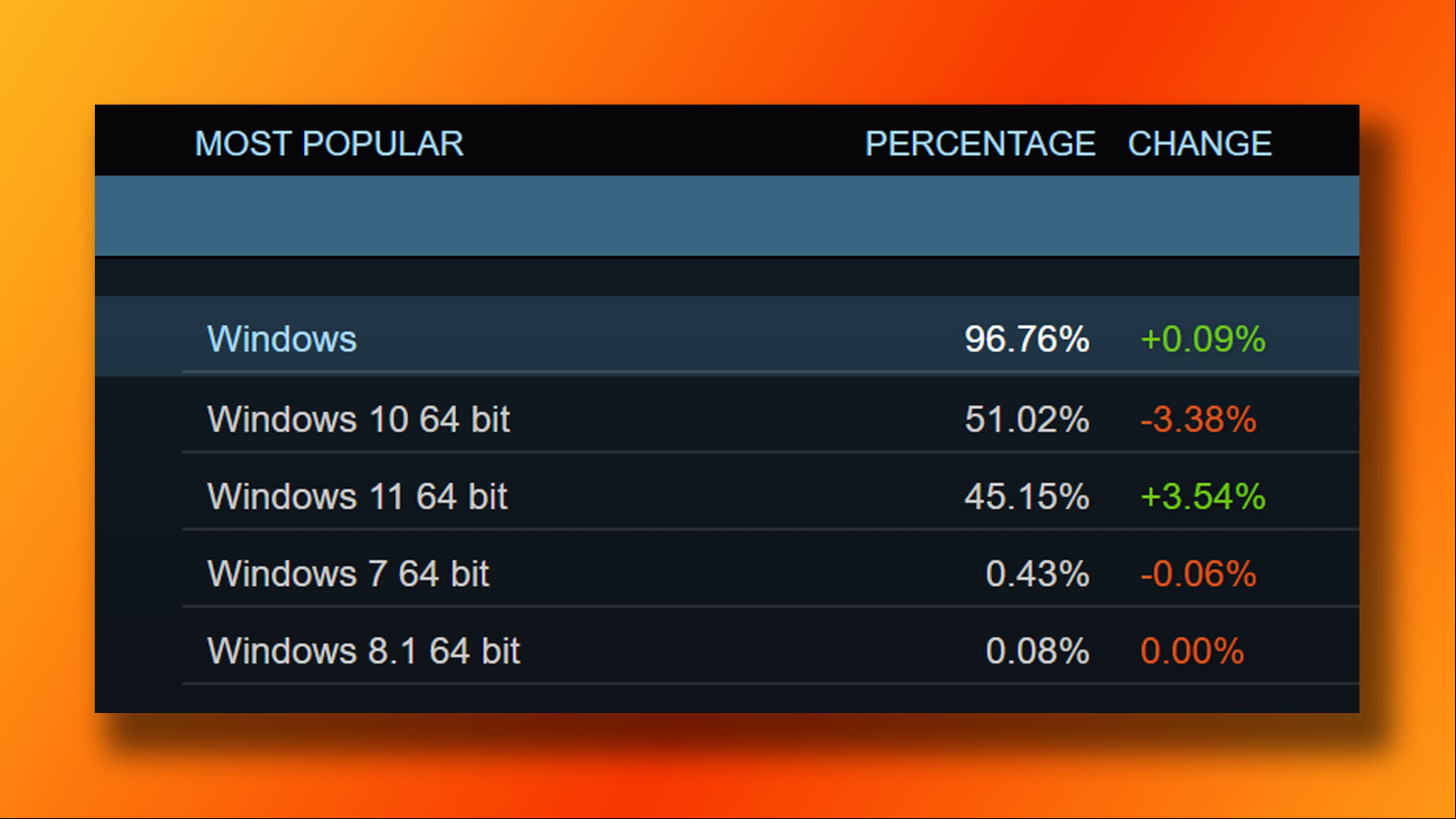It's been a long time coming, but Windows 11 has finally garnered enough steam behind it (pun intended) to take over as the dominant OS on gaming PCs. While there's still some ground for Windows 11 to cover before it succeeds Windows 10 for good, the two operating systems are practically neck-and-neck in the current gaming landscape.
There's ittedly been little reason for Windows 11 outside of niche features like Auto HDR, which partly explains the operating system's slow adoption rate, not forgetting its initial teething problems, as well its hardware requirements. However, this situation looks set to change in the coming year.
| March 2024 | April 2024 | Change | |
| Windows 10 | 54.4% | 51.02% | -3.38% |
| Windows 11 | 41.61% | 45.15% | +3.54% |
The most recent Steam Hardware & Software survey reveals that Windows 11 now s for 45.15% of all gaming PCs that use Valve's game client. Narrowing the data down to Windows operating systems alone, this share jumps to a slightly more impressive 46.67%.
Comparatively, Windows 10 maintains a small lead, with 51.02% of Steam s, which similarly increases, to 52.73% when you focus just on Windows operating systems. Meanwhile, just under 1% of the Steam base is still clinging onto Windows 7 and Windows 8.1, and have since missed the Windows 11 upgrade window.

As the AI watermarks, we could see a contingent of Steam s sticking with the almost nine-year-old operating system until the last possible minute. Even then, when the time comes for Windows 10 diehards to make the jump to a new OS, Windows 12 may seem like the more appealing option.
If you're considering upgrading your system, check out our guide on how to build a gaming PC a read.
